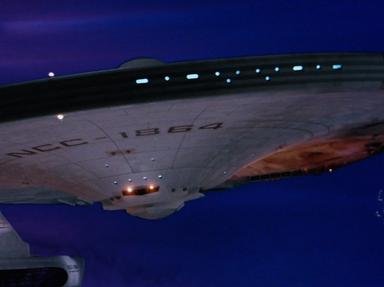Although "Star Trek" did make use of classic literature, it was from "Star Trek II: The Wrath of Khan" that we saw liberal use of quotes from classic literature become a feature. This came from the use of two separate works of literature as allegories of the story being told in the film. Khan's final line -
- is used to explicitly show Khan's view of both himself and Kirk, who he views as his great nemesis. One of Kirk's final lines is
which he uses to illustrate the sacrifice his friend, Spock, has made in giving his life to save the ship.
The use of classic literature to illustrate plot or character in the films came back in "Star Trek IV: The Voyage Home", with Kirk saying
, intended to show the folly of humanity in the 20th century continuing on its present path in regards to hunting and killing the other lifeforms with which it shares the planet Earth. In "Star Trek V: The Final Frontier", returning from shore leave, Kirk then observes the Enterprise out of the window of the shuttle, and says
, which is intended to show that, whatever may come, his first love is always his ship.
But it isn't just Kirk to use classic literature to make a point, as in "Star Trek VI: The Undiscovered Country", it is Spock who makes his own quotation to emphasise a point -
. This he uses during the investigation of the incident that ultimately saw Kirk and McCoy taken into custody by the Klingons to indicate there is only one possible explanation that fits the facts. However, it is the Klingon General Chang who most liberally quotes from the classics, most notably "Cry Havoc, and let slip the dogs of war!", to exclaim his delight at letting himself loose to fight, the state that Klingons relish.
